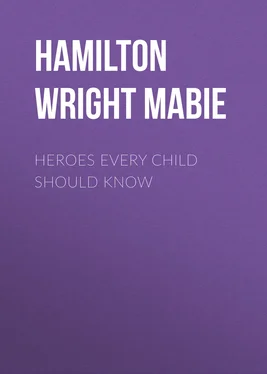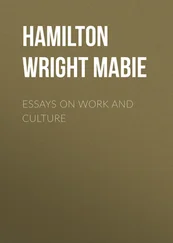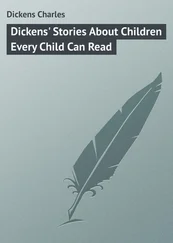Hamilton Wright Mabie - Heroes Every Child Should Know
Здесь есть возможность читать онлайн «Hamilton Wright Mabie - Heroes Every Child Should Know» — ознакомительный отрывок электронной книги совершенно бесплатно, а после прочтения отрывка купить полную версию. В некоторых случаях можно слушать аудио, скачать через торрент в формате fb2 и присутствует краткое содержание. Жанр: foreign_children, foreign_antique, foreign_prose, на английском языке. Описание произведения, (предисловие) а так же отзывы посетителей доступны на портале библиотеки ЛибКат.
- Название:Heroes Every Child Should Know
- Автор:
- Жанр:
- Год:неизвестен
- ISBN:нет данных
- Рейтинг книги:5 / 5. Голосов: 1
-
Избранное:Добавить в избранное
- Отзывы:
-
Ваша оценка:
- 100
- 1
- 2
- 3
- 4
- 5
Heroes Every Child Should Know: краткое содержание, описание и аннотация
Предлагаем к чтению аннотацию, описание, краткое содержание или предисловие (зависит от того, что написал сам автор книги «Heroes Every Child Should Know»). Если вы не нашли необходимую информацию о книге — напишите в комментариях, мы постараемся отыскать её.
Heroes Every Child Should Know — читать онлайн ознакомительный отрывок
Ниже представлен текст книги, разбитый по страницам. Система сохранения места последней прочитанной страницы, позволяет с удобством читать онлайн бесплатно книгу «Heroes Every Child Should Know», без необходимости каждый раз заново искать на чём Вы остановились. Поставьте закладку, и сможете в любой момент перейти на страницу, на которой закончили чтение.
Интервал:
Закладка:
Therefore one night, when the two babies were but eight months old, Hera sent two huge serpents to destroy them. The children were asleep in the great shield of brass which Amphitryon carried in battle for his defence. It was a good bed, for it was round and curved toward the centre, and filled with soft blankets which Alcmene and the maids of the house had woven at their looms. Forward toward this shield the huge snakes were creeping, and just as they lifted their open mouths above the rim, and were making ready to seize them, the twins opened their eyes. Iphicles screamed with fright. His cries wakened their mother, Alcmene, who called in a loud voice for help. But before Amphitryon and the men of the household could draw their swords and rush to the rescue, the baby Hercules, sitting up in the shield unterrified and seizing a serpent in each hand, had choked and strangled them till they died.
From his early years Hercules was instructed in the learning of his time. Castor, the most experienced charioteer of his day, taught him, Eurytus also, how to shoot with a bow and arrows; Linus how to play upon the lyre; and Eumolpus, grandson of the North Wind, drilled him in singing. Thus time passed to his eighteenth year when, so great already had become his strength and knowledge, he killed a fierce lion which had preyed upon the flocks of Amphitryon while they were grazing on Mount Cithaeron, and which had in fact laid waste many a fat farm of the surrounding country.
But the anger of Hera still followed Hercules, and the goddess sent upon him a madness. In this craze the hero did many unhappy deeds. For punishment and in expiation he condemned himself to exile, and at last he went to the great shrine of the god Apollo at Delphi to ask whither he should go and where settle. The Pythia, or priestess in the temple, desired him to settle at Tiryns, to serve as bondman to Eurystheus, who ruled at Mycenae as King, and to perform the great labours which Eurystheus should impose upon him. When these tasks were all accomplished, the inspired priestess added, Hercules should be numbered among the immortal gods.
The first task which Eurystheus required of Hercules was to bring him the skin of a lion which no arrow nor other weapon could wound, and which had long been a terror to the good people who lived in Nemea. Hercules set forth armed with bow and quiver, but paused in the outer wood of Nemea long enough to cut himself his famous club. There too he fell in with an honest countryman who pledged him to make a sacrifice to Zeus, the saviour, if he, Hercules, should return victorious; but if he were slain by the monstrous lion, then the countryman should make the sacrifice a funeral offering to himself as a hero.
So Hercules proceeded, far into a dense wood, deserted because all people feared the fierce beast it protected. On he went till after many days he sighted the lion at rest near the cave which was its den. Standing behind a tree of great girth, Hercules fitted and let fly an arrow. It struck and glanced, leaving the animal unharmed. Then he tried another shot, aiming at the heart. Again the arrow failed. But the lion was by this time roused, and his eyes shot fiery glances, and the heavy roar from his throat made the woods most horribly resound. Then the devoted Hercules seized his heavy wooden club, and rushing forward drove the lion by the suddenness and fierceness of his assault into his den. But the den had two entrances. Against one Hercules rolled huge stones, and entering the cave by the other he grasped the lion's throat with both hands, and thus held him struggling and gasping for breath till he lay at his feet dead.
Hercules swung the mighty bulk upon his shoulders and proceeded to seek the countryman with whom his pledge stood. So great had been his journey, and so hard his search, that he did not find the good man till the last of the thirty days. There he stood just on the point of offering a sheep to Hercules, supposing him dead. Together they sacrificed the sheep to Zeus instead, and Hercules, vigorous and victorious, bore the mighty lion's body to Eurystheus at Mycenae.
Entering the place and throwing the carcass down before the king, Hercules so terrified Eurystheus by this token of his wonderful strength that the King forbade him ever again to enter the city. Indeed some say that the terror of Eurystheus was so great that he had a jar or vessel of brass secretly constructed underground which he might use as a safe retreat in case of danger. This "jar" was probably a chamber and its walls covered within with plates of brass. For now in our own day is seen there at Mycenae a room under the earth, and the nails which fastened the brass plates to the wall still remain. Ever after the conquest of this lion Hercules clothed himself with the skin.
The second task of Hercules was to destroy a hydra or water snake which dwelt in the marsh of Lerna, a small lake near Mycenae. The body of this snake was large and from its body sprang nine heads. Eight of these heads were mortal, but the ninth head was undying.
Hercules stepped into his chariot and his dear nephew Iolaus, who was permitted by the Delphic priestess to drive for him, took up the reins. The way to Lerna was pleasant. In spring-time crocuses and hyacinths sprang by the roadside, and in early summer the nightingales sang in the olive groves, vineyard and forest. That so great and horrible a monster could be near!
When Hercules and Iolaus came to Lerna they drew close to ground rising near a spring, and Hercules dismounting and searching found the very hole into which the hydra had retired. Into this he shot fiery arrows. The arrows discomforting the snake it crawled forth and, darting at him furiously, endeavoured to twine itself about his legs. The hero began then to wield his mighty club. He crushed head after head upon the snake's body, but for every one crushed two sprang in its place.
At length the hydra had coiled so firmly round one leg, that Hercules could not move an inch from the spot. And now an enormous crab came from the water out of friendship for the hydra, and that too crept up to Hercules and, seizing his foot, painfully wounded him.
Swinging his club with heroic vigor Hercules beat the crab to death. Then he called to Iolaus to fire a little grove of trees near by. Iolaus at once set the fire, and when the saplings were well aflame he seized them and, standing by the hero, as fast as Hercules cut off a head of the hydra he seared the neck with a flaming brand. The searing prevented the heads from growing again. When all the eight mortal heads had thus been dispatched Hercules struck off the one said to be immortal and buried it in the roadway, setting a heavy stone above. The body of the hydra he cut up and dipped his arrows in the gall, which was so full of poison that the least scratch from such an arrow would bring certain death.
Eurystheus received the news of the destruction of the water snake with bad grace. He claimed that Hercules had not destroyed the monster alone, but only with the assistance of Iolaus. All the people, however, rejoiced greatly, and they hastened to drain the marsh where the hydra had dwelt so that never again could such an enemy abide upon their lands.
In the days in which Hercules lived, Arcadia was a beautiful country of cool, sweet-scented woods, clear mountain streams, and sloping meadow-sides from which rose every now and then the roof of a hunter's cottage or a shepherd's hutch. It was a country also peculiarly pleasing to Artemis, the goddess of the chase, and peculiarly also it was the haunt of all animals especially dear to the goddess.
Читать дальшеИнтервал:
Закладка:
Похожие книги на «Heroes Every Child Should Know»
Представляем Вашему вниманию похожие книги на «Heroes Every Child Should Know» списком для выбора. Мы отобрали схожую по названию и смыслу литературу в надежде предоставить читателям больше вариантов отыскать новые, интересные, ещё непрочитанные произведения.
Обсуждение, отзывы о книге «Heroes Every Child Should Know» и просто собственные мнения читателей. Оставьте ваши комментарии, напишите, что Вы думаете о произведении, его смысле или главных героях. Укажите что конкретно понравилось, а что нет, и почему Вы так считаете.












